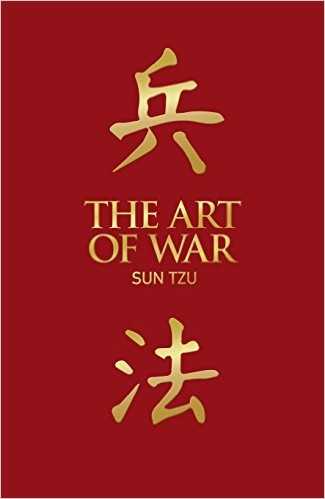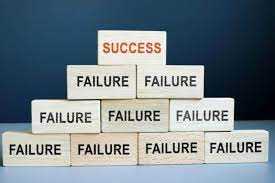Quotes
Top 50 Famous Quotes from the Art of War

Famous Quotes from the Art of War – The Art of War is one of the most well known pieces of literature. While not everyone has read it, people have heard of this book on war and strategy at least once. As a historical piece of literature written by Chinese General Sun Tzu, there are many notable lines in the book. There are also many inspirational pieces in the book. Some are more recognized than others but the book itself has left an impact. These are some of the Famous Quotes from the Art of War you can use as inspiration or to get an idea of the book:
- “The wise warrior avoids the battle.”
- “The supreme art of war is to subdue the enemy without fighting.”
- “In the midst of chaos, there is also opportunity.”
- “Who wishes to fight must first count the cost”
- “So in war, the way is to avoid what is strong, and strike at what is weak.”
- “One may know how to conquer without being able to do it.”
- “All warfare is based on deception.”
- “Treat your men as you would your own beloved sons. And they will follow you into the deepest valley.”
- “Victorious warriors win first and then go to war, while defeated warriors go to war first and then seek to win.”
- “The greatest victory is that which requires no battle”
- “He will win who knows when to fight and when not to fight.”
- “Ponder and deliberate before you make a move.”
- “The whole secret lies in confusing the enemy, so that he cannot fathom our real intent.”
- “If he sends reinforcements everywhere, he will be weak everywhere.”
- “Success in warfare is gained by carefully accommodating ourselves to the enemy’s purpose.”
More Famous Quotes from the Art of War
- “There is no instance of a nation benefitting from prolonged warfare.”
- “A leader leads by example not by force.”
- “In the practical art of war, the best thing of all is to take the enemy’s country whole and intact; to shatter and destroy it is not so good.”
- “When you surround an army, leave an outlet free. Do not press a desperate foe too hard.”
- “It is easy to love your friend, but sometimes the hardest lesson to learn is to love your enemy.”
- “The art of war is of vital importance to the State. It is a matter of life and death, a road either to safety or to ruin. Hence it is a subject of inquiry which can on no account be neglected.”
- “Be extremely subtle even to the point of formlessness. Be extremely mysterious even to the point of soundlessness. Thereby you can be the director of the opponent’s fate.”
- “Making no mistakes is what establishes the certainty of victory, for it means conquering an enemy that is already defeated.”
- “Move swift as the Wind and closely-formed as the Wood. Attack like the Fire and be still as the Mountain.”
- “What the ancients called a clever fighter is one who not only wins, but excels in winning with ease.”
- “Attack him where he is unprepared, appear where you are not expected.”
- “Begin by seizing something which your opponent holds dear; then he will be amenable to your will.”
- “We are not fit to lead an army on the march unless we are familiar with the face of the country—its mountains and forests, its pitfalls and precipices, its marshes and swamps.”
- “The principle on which to manage an army is to set up one standard of courage which all must reach.”
- “In raiding and plundering be like fire, in immovability like a mountain.”
- “Do not repeat the tactics which have gained you one victory, but let your methods be regulated by the infinite variety of circumstances.”
- “If fighting is sure to result in victory, then you must fight, even though the ruler forbid it; if fighting will not result in victory, then you must not fight even at the ruler’s bidding.”
“He who exercises no forethought but makes light of his opponents is sure to be captured by them.”- “Thus the expert in battle moves the enemy, and is not moved by him.”
- “How to make the best of both strong and weak—that is a question involving the proper use of ground.”
Other Memorable Lines from The Art of War
- “Hold out baits to entice the enemy. Feign disorder, and crush him.”
- “Bravery without forethought, causes a man to fight blindly and desperately like a mad bull. Such an opponent, must not be encountered with brute force, but may be lured into an ambush and slain.”
- “The quality of decision is like the well-timed swoop of a falcon which enables it to strike and destroy its victim.”
- “The control of a large force is the same principle as the control of a few men: it is merely a question of dividing up their numbers.”
- “No ruler should put troops into the field merely to gratify his own spleen; no general should fight a battle simply out of pique.”
- “Move not unless you see an advantage; use not your troops unless there is something to be gained; fight not unless the position is critical.”
- “If you know the enemy and you know yourself, you need not fear the result of a hundred battles. If you know yourself but not the enemy, for every victory gained you will also suffer a defeat. If you know neither the enemy nor yourself, you will succumb in every battle”
- “Whoever is first in the field and awaits the coming of the enemy, will be fresh for the fight; whoever is second in the field and has to hasten to battle will arrive exhausted.”
- “The general who advances without coveting fame and retreats without fearing disgrace, whose only thought is to protect his country and do good service for his sovereign, is the jewel of the kingdom.”
- “Anger may in time change to gladness; vexation may be succeeded by content. But a kingdom that has once been destroyed can never come again into being; nor can the dead ever be brought back to life.”
- “The following are the principles to be observed by an invading force: The further you penetrate into a country, the greater will be the solidarity of your troops, and thus the defenders will not prevail against you.”
- “When the general is weak and without authority; when his orders are not clear and distinct; when there are no fixed duties assigned to officers and men, and the ranks are formed in a slovenly haphazard manner, the result is utter disorganization.”
- “If soldiers are punished before they have grown attached to you, they will not prove submissive; and, unless submissive, then will be practically useless. If, when the soldiers have become attached to you, punishments are not enforced, they will still be unless.”
- “There are roads which must not be followed, armies which must not be attacked, towns which must not be besieged, positions which must not be contested, commands of the sovereign which must not be obeyed.”
- “Engage people with what they expect; it is what they are able to discern and confirms their projections. It settles them into predictable patterns of response, occupying their minds while you wait for the extraordinary moment — that which they cannot anticipate.”
Did you like these quotes? You can enjoy more famous quotes with our “Famous Quotes by the Founding Fathers” and “Famous Inauguration Quotes.”





